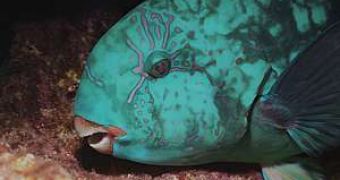I doubt that you have ever seen a fish with the eyes closed, but fish do sleep! (even snakes sleep too, even if their eyelids are soldered and transparent). Physiological measurements revealed that fish go through periods of drowsiness characterized by low responses to environmental factors. It is a very basic type of sleep, not related to drowsiness in mammals.
But some fish don't always get the "shut-eye" for sleeping. A new research made at Stansford University reveals that pet zebrafish can turn into insomniacs, especially when researchers change their biology.
Like any fish, zebrafish do no posses eyelids but they do take naps and can even have sleepless nights. This research could have positive implications in interpreting some human sleeping disorders.
Narcolepsy is a neurological disorder experienced by about one in 2,000 Americans, characterized by excessive daytime sleepiness, interrupted nighttime sleep, episodes of muscle paralysis that make a narcoleptic collapse and dream-like hallucinations during sleep.
A previous research made by Emmanuel Mignot, a professor of psychiatry and behavioral sciences at Stanford University, discovered that narcoleptic Dobermans and Labradors with an impaired "hypocretin" brain receptor displayed symptoms of narcolepsy resembling those of human narcolepsy.
Now, the Stanford team monitored zebrafish in aquaria, discovering that the little fish betrayed their dozed off moments by drooping their Tails and spent most of the nighttime beneath the water's surface or at the bottom of their aquarium.
Then the team compared the snooze patterns of normal zebrafish and mutant zebrafish lacking the functional hypocretin receptors. In the case of the engineered zebrafish, snooze times decreased by 30 % compared with the normal individuals. When the engineered fish did finally get asleep, they stayed so only half as long as normal fish.
"Zebrafish will provide a cheap and powerful animal model for studying sleep disorders." wrote the authors.

 14 DAY TRIAL //
14 DAY TRIAL //